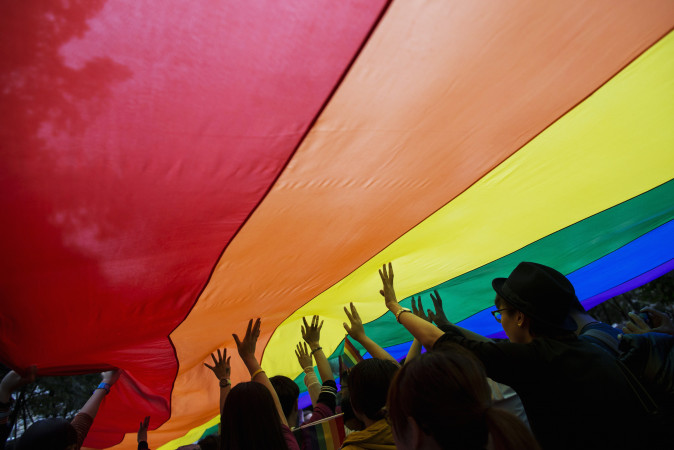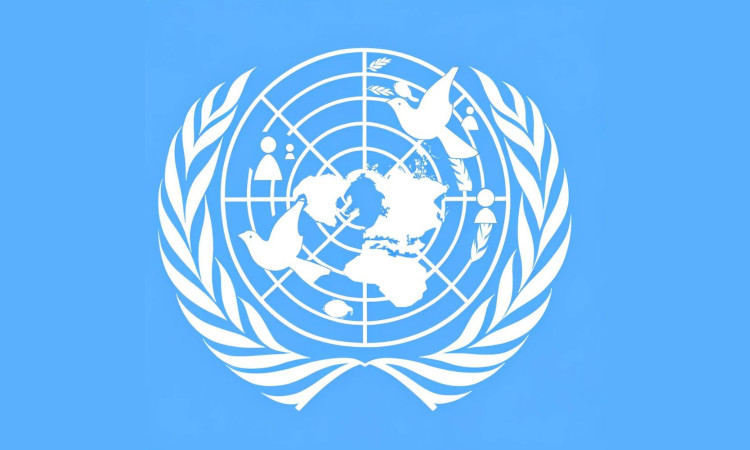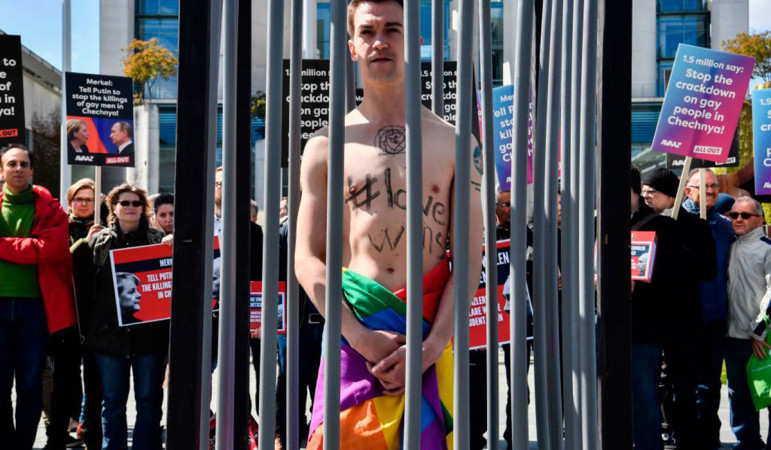The silent struggle of women amidst conflict and pandemic
2020 will probably be remembered as a period of upheavals
31/May/24
4030
The silent struggle of women amidst conflict and pandemic
Author: S. N.
2020 will probably be remembered as a period of upheavals. As the world grapples with the COVID-19 pandemic, every aspect of queer lives has undergone seismic changes. As if the pandemic was not enough, the 44-day war infected our lives with experiences that we did not expect and never even crossed our minds.
These events in 2020 had different effects on women living in each region. The combination of war and the pandemic caused serious problems for cis women living on the frontlines, trans women living far from the frontlines, queer women - every woman.
War severed friendships
During that period, I was a high school graduate living in the region, confined to home due to the pandemic. The war started on my birthday, September 27. I had celebrated my 17th birthday with friends just the day before. Upon returning home, I learned that the war had begun. I couldn't fathom how terrifying the war would be. Growing up in Aran, one of the calmest regions in the country where we were accustomed to hearing only minor skirmishes, I thought, "It's just a few shots, it'll be over soon." Two days later, I heard the news of my childhood friend's death. Thinking, "I should be with his family on the first day," I went to their house with my mother. The scene was very grim. I cannot recall ever feeling the depth of my loved one's death so profoundly in my life.
They had called his father to identify his body. I always remembered him as the one who worked on fixing cars and always complained of aching feet because of it. When his father entered, the first thing he did was to hug his son’s feet. Despite attempts by relatives to separate them, in shock, he would rub his son's feet as if trying to awaken him from the shock. Even recounting this scene is very heavy for me. His mother didn't say anything. She just looked at the door. His sister's heart had stopped four times. I just watched.
My friend was one year older than me. For a moment, Aunt Afsuss (his mother) looked at me, she had never cried like that before, she started to cry quietly, looking into my eyes. Even though we didn't speak, we understood each other.
The year I got accepted to university, her son, my friend, passed away in the war. My mother and she had always faced significant financial difficulties while raising their children. They had searched and found the cheapest options for university education. Both of us were preparing with the same teachers. She understood her son's absence by looking at me. That day never ended for me. Whenever Aunt Afsuss visited, she looked at me, sighed deeply, and turned towards the door.
So, what happened on the day the war started in the front-line region?
Those who had the means among the residents of the front-line region fled to the city - to Baku, seeking refuge with friends and acquaintances. But what about the women who didn't have these means? Sevinc Samedzadeh says, "Most of the women in the front-line region were internally displaced women. Honestly, we had only gone there to distribute sanitary pads. Hygiene supplies, pads, cleaning materials, etc., were serious problems." According to her, during the war, many families forced from Tartar and Aghdam had been placed in schools. Considering their families, the number of toilets to people was very limited in comparison to the need. Schools were also not designated to cover bathhouse needs. "If anyone from those living in Barda opened their home, they would wash up in the baths in that house."
Amidst the pandemic and various diseases, including skin diseases and the COVID-19 virus, women who were particularly vulnerable were fighting with all their might. "Illnesses spread within two weeks - skin diseases and COVID," Sevinc added. According to her, combating diabetes, obtaining medications turned into a daily struggle for the elderly. They could only obtain the medication they needed from the districts where they were registered. As classrooms and narrow rooms were transformed into the new normal with unknown faces and cramped spaces, the discomfort intensified. "Several families would stay in one classroom and had to stay with strangers."
In this confusion, there was a palpable sense of instability in the classroom environments, surrounded by an atmosphere of uncertainty in the unsafe environment where women sought refuge. Nevertheless, amidst the chaos, there was also a sense of unity and solidarity emerging as a result of human resilience and compassion. "Some schools provided meals," Sevinc reports, which provided a respite opportunity for women encoded with the responsibility of putting food on the table every day. However, despite this small respite, the difficulties persisted.
Most of the schools were facing heating and sewage problems, which is a clear manifestation of systemic negligence. "Newly built schools had heating systems, but the old ones didn't even have toilets. At one point, the MES brought portable toilets to schools due to the lack of toilets. Later on, they became defunct," says Sevinc Samedzade.
For the women seeking refuge in schools, hope hung by a thread, overshadowed by the harsh realities of conflict. "The community hoped that the war would end soon, so they tried to adapt to the hygiene problems." They didn't know that the conflict would last for 44 long and exhausting days, depriving them of everything normal.
Cut off from the outside world, isolated communities deprived of information found solace in the mercy of uncertainty. "Because people had no access to information - neither television, nor radio, nor the internet - they couldn't get any information about the war," Sevinc Samedzadeh noted during our conversation. In other words, deprived even of traditional means of communication, they enveloped the chaos in silence. When bombs fell, fear permeated the air, and women and children huddled together in the corners of shelters for refuge. "When a bomb fell on Barda, we went to two shelters. Women and children were in the corners of the shelters. They were very scared. They had no food or water. Then we found some water and sedatives and shared them with them."
After the first bomb fell on Barda, migration began, and the most vulnerable individuals - impoverished people facing financial difficulties - sought refuge in the confines of makeshift shelters, where they remained. "Those left behind in the shelters were the poorest families who were forced to endure that hardship," says Sevinc. They were a forgotten few, bearing the heavy burden of the brutality of war.
Challenges faced by women in Baku
Women in Baku also spoke about the difficulties they faced, which coincided with both the pandemic and the war. During our conversation, queer trans woman Röya touched on interesting aspects of people's behaviour during the wartime period.
In the midst of the public tensions created by the pandemic and war in Azerbaijan, there was a point of contradiction between marginalised individuals and hegemonic ideas. Within this complex landscape, individuals were ready to channel their desires and frustrations, often directing them towards the marginalised queer community of society. "For them, queers were also considered enemies," notes Röya. It was precisely in this environment that the LGBTQI+ community struggled with the consequences of marginalisation and the erosion of intimate relationships with family, friends, and partners.
The biggest challenge for society was severed connections with our closest confidants, the people with whom we could share our true identities. As internal social interactions decreased and relationships turned into digital exchanges, the sense of isolation deepened. The onset of war intensified these difficulties, amplifying feelings of estrangement. Röya explains: "The greatest difficulty was that my physical connections with my friends, the people around whom I could be completely myself, were severed. Often, maintaining contact was only possible digitally. Therefore, the wartime period brought even more challenges."
In this chaotic period, Röya found herself compelled to retreat from public spaces and official institutions to hide aspects of her identity and avoid potential repercussions. "But at that time, I didn't present myself publicly as a woman; I hid," she says. This self-imposed invisibility shielded Röya from open discrimination. Amidst this chaos, family support played a crucial role for Röya. "I had no income. During this period, I could only rely on financial support from my family. I was just waiting for these events to end in turmoil."
Challenges faced by trans sex workers
During the war and pandemic, although some of my friends had family support, many trans women engaged in sex work neither benefited from social assistance nor received help from their families. I informed them that I would include their stories if they wanted to discuss them, but they declined to give interviews because they did not want to relive such a difficult period. I did not broach the subject again because I could deeply sense their fear and sadness.
Trans rights activist Miray Deniz also spoke about the difficulties faced by trans sex workers. According to her, trans women were completely isolated during the war and pandemic.
"In Azerbaijan, whether there is a war or not, finding hormone treatments has always been a problem. It was almost impossible to find a job in Azerbaijan and similar countries. Because the state does not want trans women to find jobs, and neither does society. They want trans women to be sex objects," says Miray. According to her, working in the sex industry was also very difficult during that time. People were both very reckless, and the hatred towards trans people created fear among them. Most trans women had a question in their minds: "Will the people we meet do something to us?"
During the war, sex work became even more difficult. Miray was trying to live with the support of her family during that time. According to her, she was also very tense during this period. When Miray talked about peace, her family reacted as if saying, "At least don't say anything during this period, you are trans anyway, and don't talk about peace either. Be silent!" "It was also very difficult to go out on the street. There were always people who would verbally attack. I often heard sentences like, 'Our sons have become martyrs for people like you, and you have become a deserter from the war. You are trying to hide from the war, I have become a widow because of you,'" she says.
Challenges faced by students and abiturients
During the war, women who were university students or preparing for university entrance exams were under heavy pressure and fear due to limited opportunities and the uncertainty of the outcome on a path they did not choose for themselves. Because the focus was more on men, the pressures and traumas experienced by women were overlooked. Like Miray, many trans women faced additional pressures on social media and on the streets from their families and companions, such as "You chose to be a woman, so you can escape from the war." Despite four years passing since the war, some still couldn't pull themselves together. One of them is Masma. Masma lived in the city of Shirvan during the war. She talks about how the news of martyrs affected her mental health during her university preparation period.
"I'll never forget one day when I was studying, cries and screams started coming from the street. We learned that the neighbour of our preparation teacher received news of a martyr. There were hundreds of people on the street. I tried to leave and go home. Suddenly, I was hit by a crisis, I didn't know what to do. I jumped on the first bus that came and tried to calm down. After crying for a while, I looked around. The place I was going to was unfamiliar. When I asked the people sitting next to me, I learned that the bus was going to Hajigabul. I found out how to return from the bus driver and got off the bus. They were bringing another martyr where I fell. There were cries and screams again. This time I couldn't stop crying. I don't know if it was because I couldn't find my way home or because I had seen so many martyrs, I was crying. Despite the difficulties, I finally made it home that day. That incident never left my mind. Because until that time, I had never experienced the death of any close relative, and I had grown up far from death, crying, and screams. Seeing so much death all at once at a time when I wasn't prepared caused trauma in me. And it's not just that. I had many relatives in the military and many boys over 17 years old. I was very afraid that something would happen to them."
It's commendable that each of the friends who shared their stories sought therapy to address the trauma stemming from the war for an extended period. While I can't guarantee that such events won't happen again, I sincerely wish them success and healing.
Powered by Froala Editor



